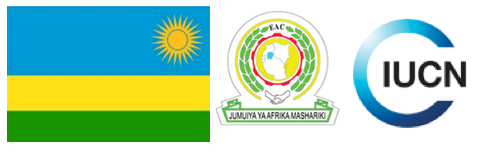Thirteen African country representatives and stakeholders participating in the 'Africa High Level Bonn Challenge Roundtable' adopted the 'Kigali Declaration on Forest Landscape Restoration in Africa,' which reaffirms and increases commitments to the Bonn Challenge, an initiative aiming to restore 150 million hectares of the world's deforested and degraded lands by 2020 and 350 million hectares by 2030 through forest landscape restoration (FLR) activities.
 27 July 2016: Thirteen African country representatives and stakeholders participating in the ‘Africa High Level Bonn Challenge Roundtable’ adopted the ‘Kigali Declaration on Forest Landscape Restoration in Africa,’ which reaffirms and increases commitments to the Bonn Challenge, an initiative aiming to restore 150 million hectares of the world’s deforested and degraded lands by 2020 and 350 million hectares by 2030 through forest landscape restoration (FLR) activities.
27 July 2016: Thirteen African country representatives and stakeholders participating in the ‘Africa High Level Bonn Challenge Roundtable’ adopted the ‘Kigali Declaration on Forest Landscape Restoration in Africa,’ which reaffirms and increases commitments to the Bonn Challenge, an initiative aiming to restore 150 million hectares of the world’s deforested and degraded lands by 2020 and 350 million hectares by 2030 through forest landscape restoration (FLR) activities.
According to a press release by the Rwanda Environment Management Authority (REMA), new pledges made at the opening of the meeting took “global FLR commitments to 100 million hectares.”
The Roundtable and an International Knowledge Sharing Workshop on FLR held in parallel were hosted by the Government of Rwanda, in collaboration with the East African Community (EAC) and the International Union for Conservation of Nature (IUCN). The Workshop was co-organized also by the International Union of Forest Research Organizations (IUFRO), the Food and Agriculture Organization of the UN (FAO) and Wageningen CDI. The events convened from 26-27 July 2016, in Kigali, Rwanda, to discuss elements for successful FLR implementation, including policy, finance opportunities and assessment of FLR opportunities. Participants also exchanged experiences regarding FLR work being undertaken and identified opportunities for collaboration within Africa.
The resulting Kigali Declaration recognizes that FLR is critical to achieving sustainable development through the maintenance and rebuilding of natural capital, ensuring benefits for both rural and urban communities. It also recognizes that FLR can help realize, inter alia, the Sustainable Development Goals (SDGs) and the Aichi Biodiversity Targets, and offers multiple benefits that align African economic growth and poverty reduction plans, including the African Union’s Agenda 2063.
The Declaration calls for, inter alia: coordination among African countries and the mobilization of public and private sector financial resources; mainstreaming restoration into national development policies; capacity building through technical expertise and environmental and social standards; collective climate action; and innovative financial schemes that enable domestic investments in FLR, including through national climate and land management fund mechanisms and tax incentives. The declaration will remain open for signatures through 1 September 2016, when it will be introduced at the IUCN World Conservation Congress in Hawaii, US.
The Knowledge Sharing Workshop anticipated the participation of 70 forestry experts from around the world, according to a press release by REMA. The Workshop was to focus on the exchange of knowledge and experience in FLR, inclusive of discussions on participatory planning, landscape governance, institutional arrangements and regulatory frameworks, market mechanisms, funding and technical aspects of FLR operations on the ground. [IUCN Press Release] [Kigali Declaration] [REMA Press Release] [Bonn Challenge Website]